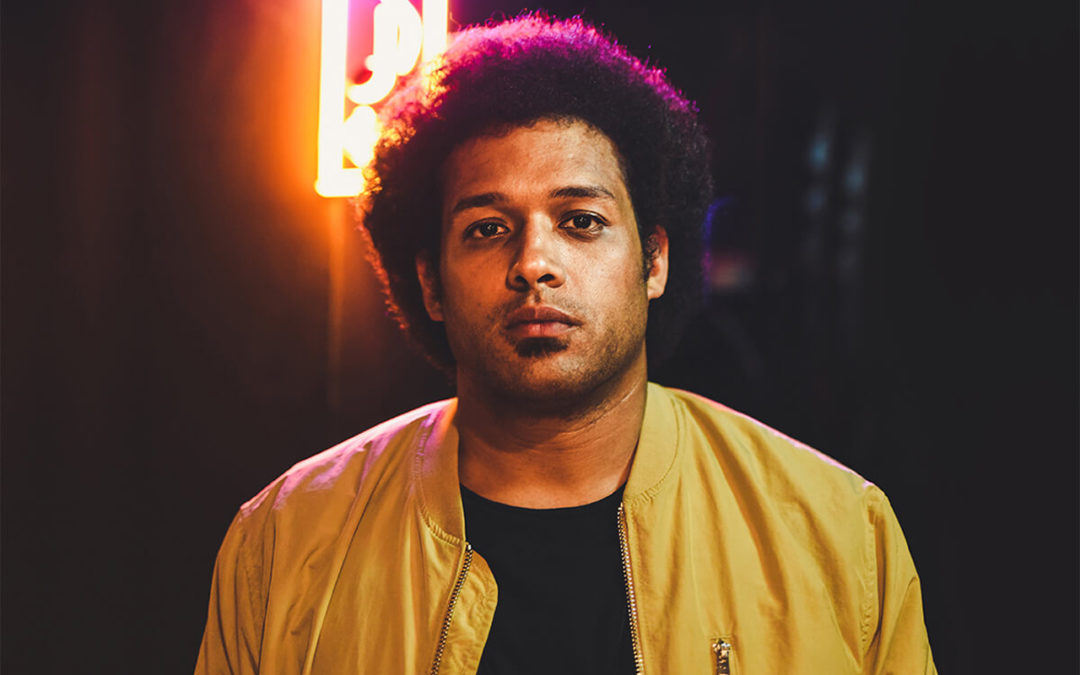
Makaya McCraven photo by David-Marques
Louis Cole Big Band
Saturday October 22, 8:00pm PDT
Town Hall Great Hall
In-person
Tickets $5–35
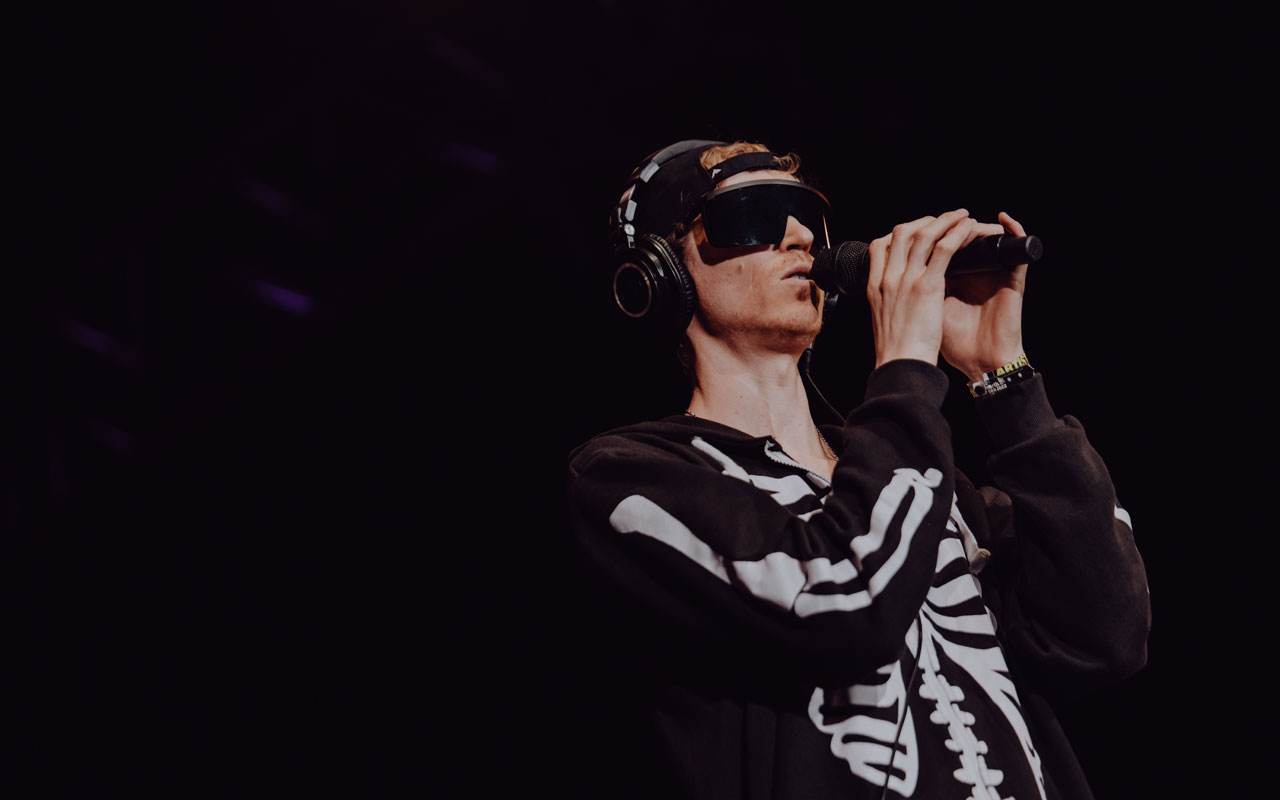
BY ALEXA PETERS
Sponsored by SeedIP.
Multi-instrumentalist, composer, and producer Louis Cole is a master of groovy, get-on-your-feet electro-funk and a deadpan, internet meme-inspired aesthetic that keeps audiences coming back for more.
Drawing on jazz, funk, electronic and pop, Cole’s performance at Earshot features one of his newer projects—his big band—which is made up of Frederico Heliodoro dos Santos on bass, Paul Cornish on keyboards, Henry Solomon on baritone saxophone, Jon Taro Hatamiya on trombone, Zach Ramacier on trumpet, Shai Golan on alto saxophone, Doug Mosher on tenor sax and two backing vocalists, Isis Giraldo and Genevieve Artadi. Artadi, Cole’s bandmate in the 2009-formed Los Angeles-based experimental avant-pop duo KNOWER and a fellow signee of Flying Lotus’ label, Brainfeeder, will also open for the big band with a 30-minute set of her own, performing tracks from her 2020 debut solo album, Dizzy Strange Summer.
Born in Los Angeles to two musical parents, Cole’s musical journey began when he started playing drums at eight years old. He later attended USC’s Jazz Studies program and, after graduating in 2009, founded KNOWER with Artadi, another graduate of the program. In 2010, Cole released his self-titled solo album and the debut album for KNOWER.
Concurrently, he began establishing himself on YouTube, posting unique split-screen videos featuring him playing his original compositions, often in sparkly hammer pants and a cut-off MacDonald’s tee. One of his initial posts, a 2017 video for a humorous little ditty about money woes called “Bank Account,” caught the eye of Red Hot Chili peppers, John Mayer, It’s Always Sunny in Philadelphia’s Charlie Day, and Björk. Several hundred video posts later, Cole has a devoted YouTube fanbase of 188K followers.
All of that helped catapult his career in real life, but as Cole once told The Line of Best Fit, he never tried to make his music accessible. He just combines things he loves, and his list of contrasting influences explains his music’s imaginative and multi-faceted sound: Stevie Wonder, early dubstep progenitor DJ Skrillex, The Beatles, ‘80s pop group Scritti Politti, contemporary jazz artist Nate Wood, and the sounds and aesthetics of classic video games.
From 2011 until 2016, Cole produced two more records with KNOWER while also collaborating extensively with artists like Seal, Snarky Puppy, and Thundercat on their respective projects. By 2018, he had signed to Brainfeeder and released his third solo album, Time, which featured collaborations with Thundercat and jazz pianist Brad Mehldau. His fourth solo release and second with the label, Quality Over Opinion, is due out this October.
Since 2020, Cole has been touring with The Louis Cole Big Band, a new project made up of some of LA’s best players. Still chock full of Cole’s idiosyncratic humor, wacky fashion, and high-energy groove, The Louis Cole Big Band takes the off-kilter fun of Cole’s music and persona and turns it up to eleven.
The Holden Legacy: Darelle Holden Group, Dave Holden Jr.’s Grownfoux
Sunday October 23, 6:00pm PDT
Langston Hughes Performing Arts Institute
In-person & livestream
Tickets $10-25
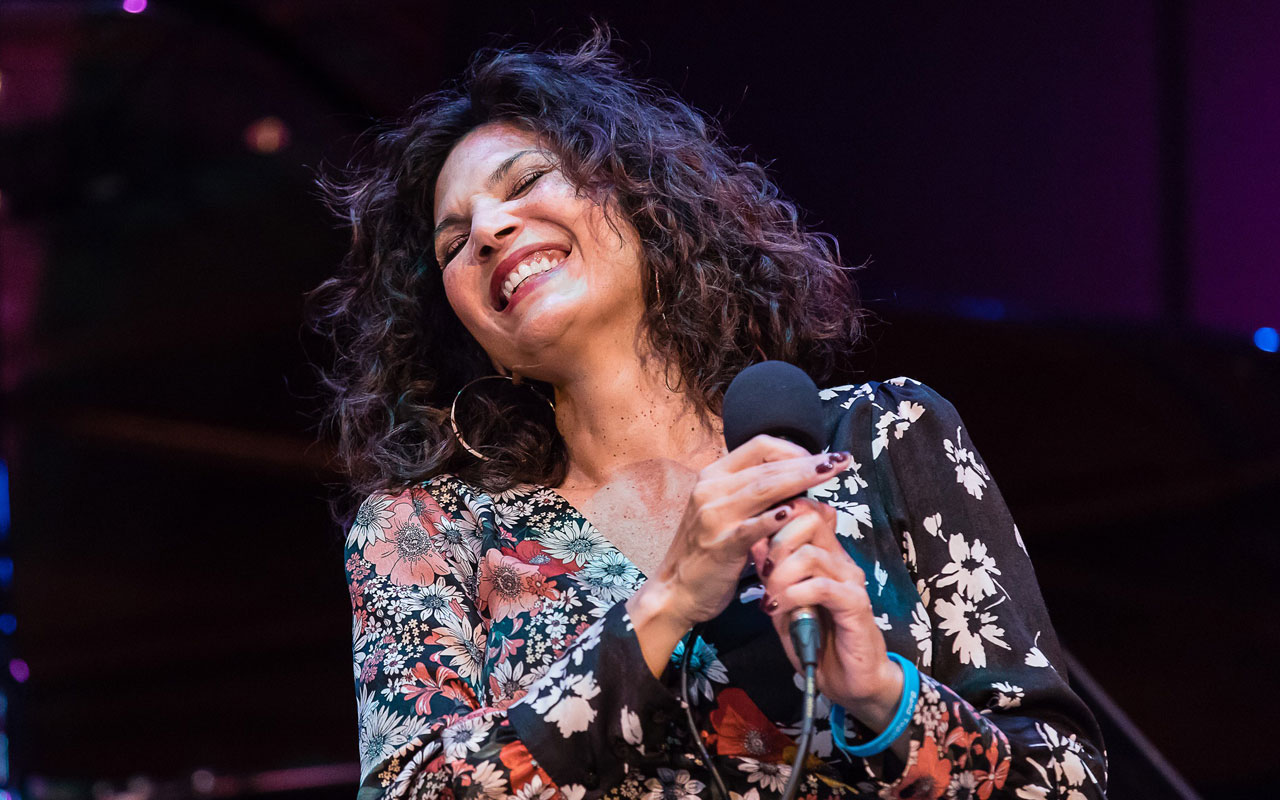
BY TARA PETERS
Sponsored by BECU. Welcomed by Ranier Avenue Radio. In-person & livestream. $10-25
In a special tribute, descendants of the great pianist and clarinetist Oscar Holden (1886-1969), often called the “patriarch of Seattle jazz,” honor the musical legacy Holden made on Jackson Street and the Central District.
After discovering his musical talents at a young age, Holden used his skills to join the Great Migration of Black southerners seeking a safer, more dignified life in the North. He left Nashville, Tennessee, first arriving in Chicago, then Vancouver, British Columbia, where he met and played alongside Jelly Roll Morton. Holden fell in love with Seattle after his band performed at the Entertainers Club in 1919, and by 1925 he settled in Seattle full-time and began performing regularly at the many clubs and speakeasies along Jackson Street, which flourished during Prohibition until the early ‘50s.
Holden contributed to the jazz on Jackson scene significantly as a bandleader and regular performer. He and his wife Leala, a notable pianist in her own right, held monthly jam sessions for local and visiting musicians in their home, which sat on Fir Street, kitty corner across from Washington Hall.
For this special Earshot performance, the legacy of Oscar Holden live on through Darelle Holden and Dave Jr. Darelle Holden takes her naturally-born talent mixed with her training at Berklee’s College of Music and years of experience backing the likes of Stevie Wonder, Elton John, and Tom Jones to bring smooth, soulful vocals that are sure to delight audiences. Her band includes Brian Monroney (guitar), Eric Verlinde (piano and keys), Osama Afifi (bass) and D’Vonne Lewis (drums). Bassist Dave Holden Jr. and his Grownfoux project bring crowd-pleasing, irresistible soul and funk grooves into the mix, alongside more family member appearances. Grownfoux features singers Quianna Holden, Phyllis Talley, and Jennifer Johnson; drummer Andrew Meltzer; saxophonist Scott Adams; guitarist Paul Sowell; Rob Pastorok on keys; and Dave Holden Jr. on bass and vocals.
Majid Bekkas Group
Sunday October 23, 8:00pm PDT
Town Hall Forum
In-person & livestream
Tickets $10-30
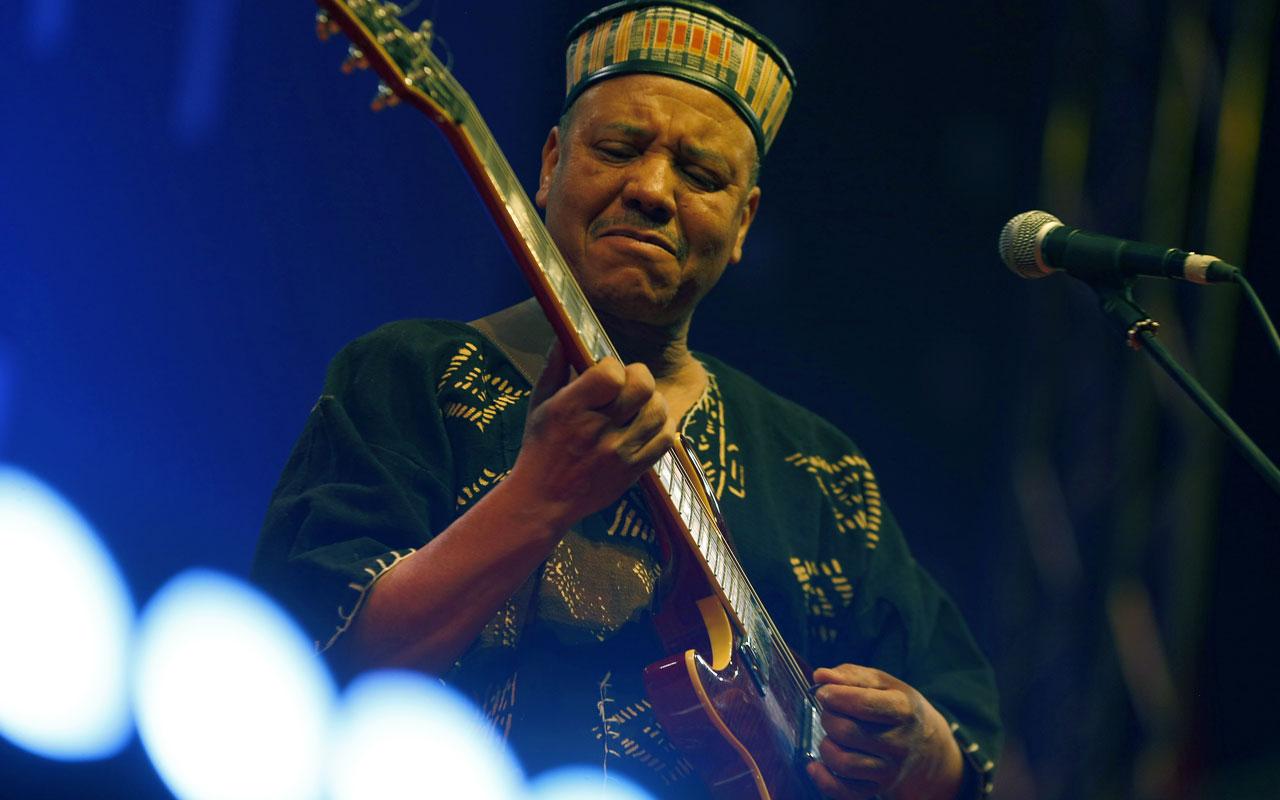
BY GREG SCHEIDERER
Sponsored by BECU. Welcomed by Seattle Sacred Music & Arts.
Majid Bekkas, nicknamed “The Bluesman of Morocco,” is touring the United States for the release of his latest album, Jodour, or “roots”.
Bekkas was born and still lives in Salé, near Rabat. In his youth, he played the banjo with local groups in Morocco. Eventually, he was exposed to Gnaoua (or Gnawa) music, which has its roots in Moroccan and West African Islamic songs and rhythms. He studied classical guitar and oud (a fretless stringed instrument similar to the lute) at the National Conservatory of Music and Dance in Rabat. By the 1980s he discovered American blues and African music by listening to the likes of John Lee Hooker, Aly Farka Touré, Fela Kuti, and Salif Keita. His varied influences and experiences make Bekkas a unique musician who has mastered both traditional and modern music.
Bekkas is well-known internationally for his contributions to World music and Ethno jazz with North African roots. He’s received numerous awards and has recorded more than twenty albums. Most recently, his album Magic Spirit Quartet received the DownBeat Editor’s Choice award in 2020. He received the Visa For Music Award for career achievement in 2016 and in 2015 his album Al Qantara was awarded the Académie Charles-Cros in France. He formed a trio with German pianist Joachim Kühn and the Spanish drummer Ramon Lopez and they recorded five albums and performed in jazz and world music festivals for more than 15 years. He has performed with the likes of Archie Shepp and Pharaoh Sanders, and German saxophonist Klaus Doldinguer, whom he has also recorded with.
In the 1990s, Bekkas formed the Gnaoua Blues Band, but interestingly, they didn’t do much recording until the turn of the century. Their 2001 album African Gnaoua Blues was a critical success and became something of the standard for Gnaoua music and its relationship with the blues. For the current tour Bekkas will be on guitar, guembri, and oud. He’s joined by Foulane Bouhssine on ribab, Nor Eddine Bahha on keyboards, Oussama Chtouki on bass, and Oussama Mougar on drums.
Makaya McCraven / Theon Cross
Tuesday October 25, 8:30pm PDT
Nectar Lounge
In-person
Tickets $25
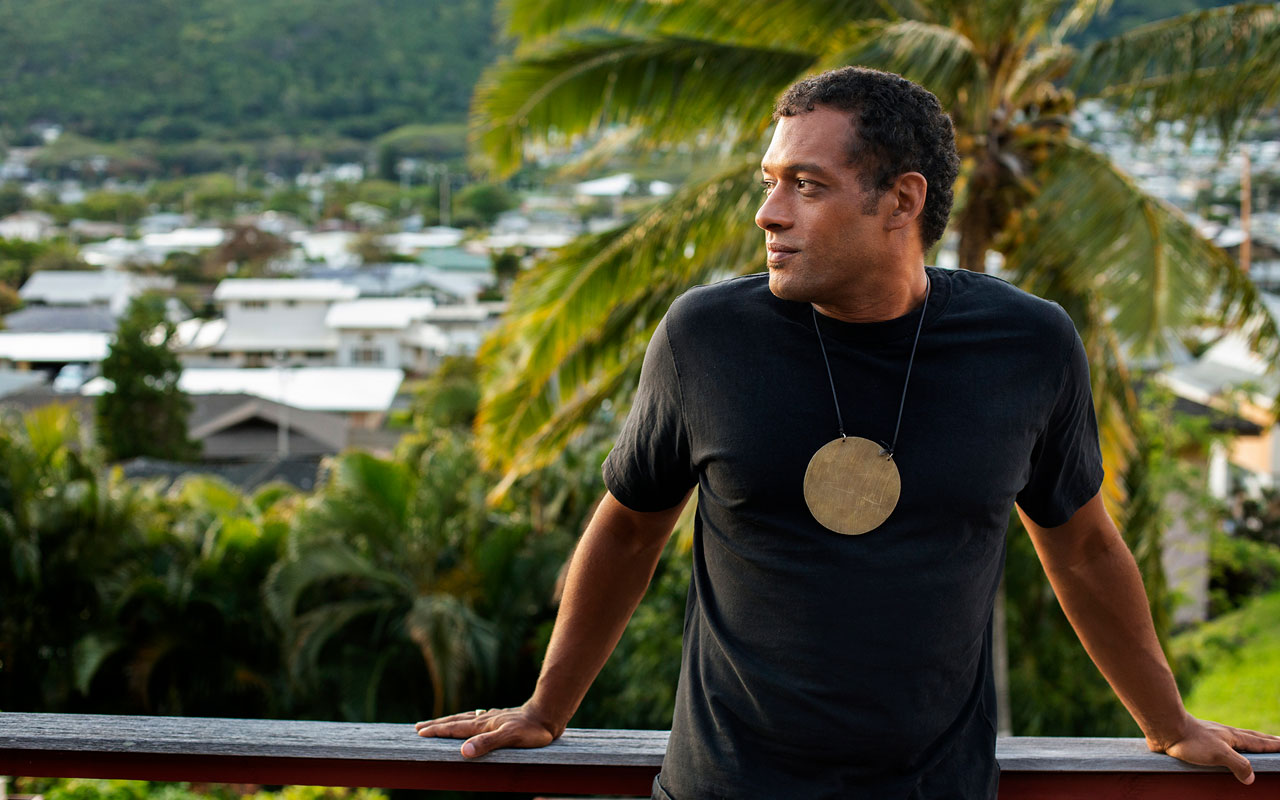
BY M.V. SMITH
Sponsored by SeedIP. In-person only (21+). $25
In the seven years since his breakthrough album In the Moment, Makaya McCraven’s prowess as a producer has often threatened to overshadow his music’s continuities with jazz tradition. McCraven’s longstanding process is to record live improvisations, then remix them into cohesive tracks. While the completed cuts can evoke the ungainly rhythms of a J. Dilla beat or emulate the shifting shapes of house music, their emotional impact derives in part from the unmistakable creative energy of skilled musicians interacting in close quarters. Last year’s Deciphering the Message, emphasized McCraven’s gift for recontextualization, intermingling the performances of frequent collaborators like vibraphonist Joel Ross and saxophonist Greg Ward, with excerpts from the Blue Note vaults. McCraven’s Earshot festival band draws from the same musical circle, featuring Marquis Hill on trumpet, Junius Paul on bass, and Jeff Parker on guitar.
Opening act Theon Cross, a central figure in London’s recent jazz renaissance, has forged a new path for the tuba as an expressive voice. As a member of the recently departed Sons of Kemet, and in his work as a bandleader, Cross explores the music of his hometown’s Afro-Caribbean diaspora, filtering his lines through reverb and other effects to emulate the woozy, disorienting bass frequencies of dub reggae. A remarkably fluent player, Cross understands the tuba’s capacity for sonic disruption, delving into hypnotic repetition and infusing his phrases with a massive, room-rattling tone.
Ben Wendel Quartet
Wednesday October 26, 6:30 & 9:00pm PDT
The Royal Room
In-person
Tickets $10-30
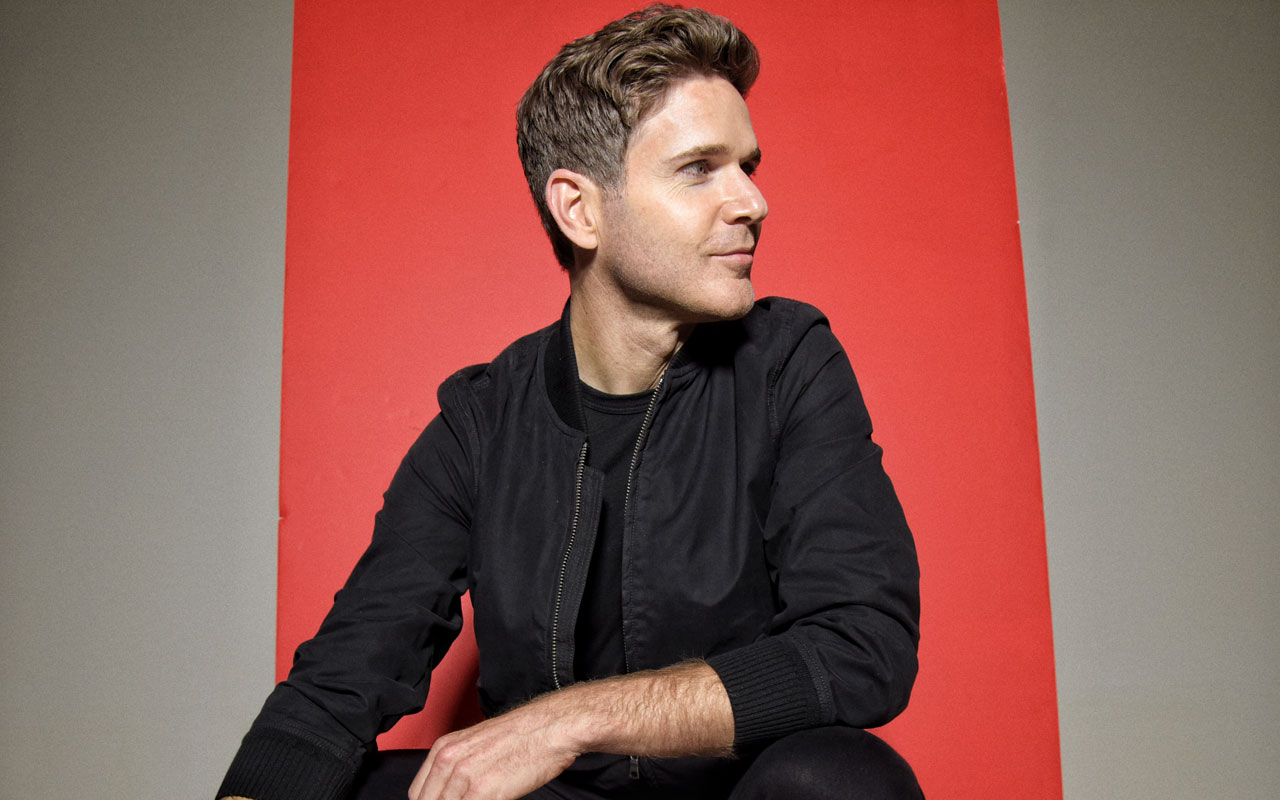
BY MARIANNE GONTERMAN
In-person only. $10-30
A torrent of mind-blowing virtuosity and unbridled imagination, Ben Wendel articulates his one-of-a-kind artistry with kaleidoscopic layers of dizzying sonic textures. “With his technical fluency, strategic melodic thinking, and cleanly dusted tone, Wendel has become an idol to an entire generation of young tenor saxophone students.” (The New York Times). The co-founder of the wildly creative band Kneebody, Wendel describes their music as “just literally an expression of what we like in the time that we’re living, and that’s it. To a great degree, that’s what jazz should always be.” Wendel released his most recent album High Heart in late 2020, his fifth as a solo performer. It is a personal statement and reflection of his own journey in a society of increasing complexity, oversaturation, and social imbalance. “Ultimately, High Heart is a project of hope, and for me, a focused and personal message in a time where it has become harder for all artists to find their way through the noise.” The Grammy-nominated saxophonist, producer, and educator is also a prolific composer, earning him multiple awards, among them the ASCAP Jazz Composer Award; the 2008, 2011, and 2017 Chamber Music America New Works grant; and the Victor Martyn Lynch-Staunton Award by the Canada Council for the Arts. Joining Wendel’s band is the brilliant Cuban pianist Fabian Almazan, a long-time collaborator with Terence Blanchard. His creations weave the worlds of jazz and classical music into ethereal tapestries of sound, garnering him critical recognition fitting artists far beyond his age. With Kneebody’s bassist Harish Raghavan and multi-instrumentalist Nate Wood on drums, this show will be a tour de force, not to be missed.
Darrell Grant MJ New Quartet
Thursday October 27, 7:30pm PDT
Town Hall Forum
In-person & livestream
Tickets $10-30
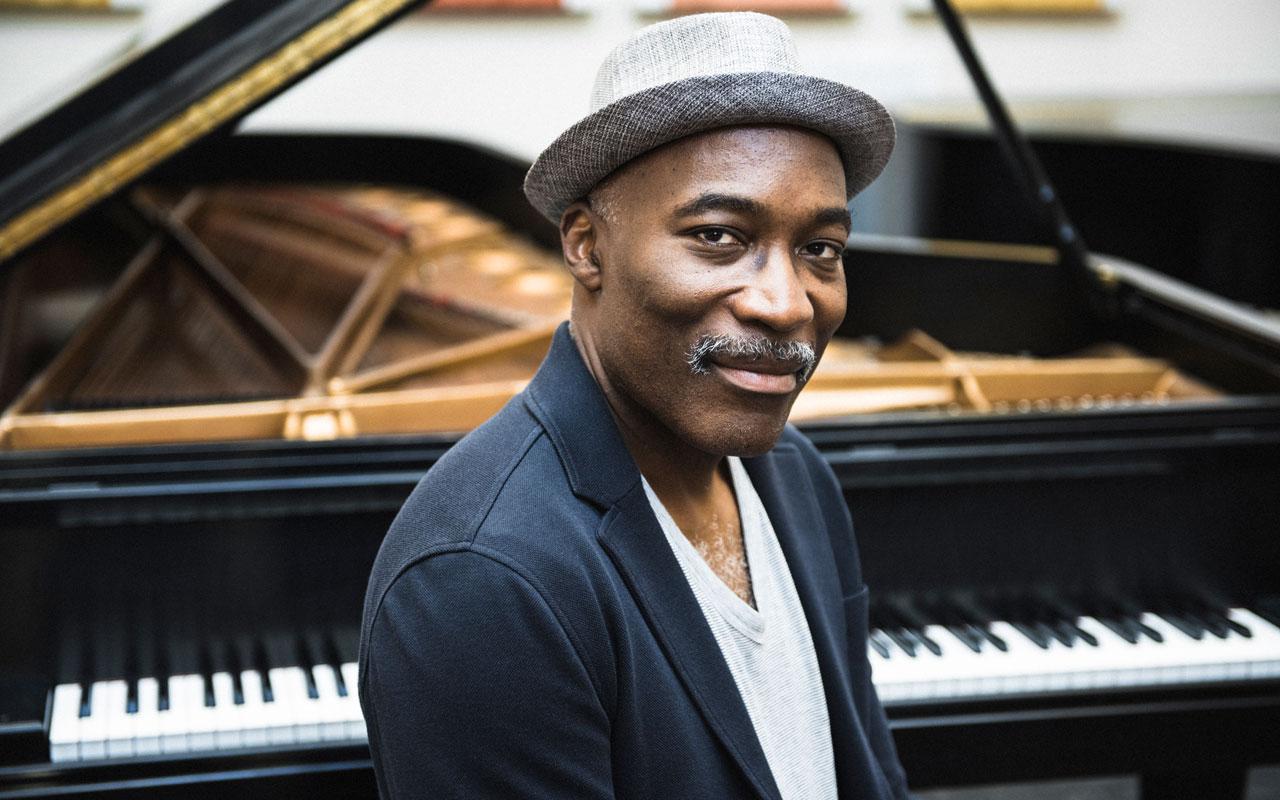
Join us in-person for a panel on jazz and social justice with Darrell Grant and Marcus Shelby at 6pm.
BY COMMUNITY CONTRIBUTOR
Sponsored by BECU. Welcomed by KNKX.
When pianist and composer Darrell Grant moved to Portland 25 years ago, he was a highly respected New York jazz man, having toured with, among others, Betty Carter and Tony Williams, recorded with saxophonist Don Braden and released a debut album as a leader, Black Art (Criss Cross, 1994) hailed by The New York Times as one of the year’s ten best. But the appeal of burrowing deeply into the life of a single community ultimately held more appeal for Grant than the life of a “young lion” on the road. Grant’s decision has been salutary for the city. Since moving there, he has not only been a major player on the scene, he has mentored the next generation of players at Portland State University. He also founded the Leroy Vinnegar Jazz Institute, which has reached more than 12,000 students with its education programs, sponsored the PDX All-Star High School Big Band, and documented Rose City jazz with a series of oral histories. And then there’s his thoughtful concept album, The Territory (Origin, 2014) inspired by his adopted home.
Grant’s most recent album, The New Black: Darrell Grant, Live at Birdland (Lair Hill, 2022) has received well-deserved rave reviews. But the project he brings to Earshot is an homage to the Modern Jazz Quartet, a band he describes as “rooted in the cultural diversity of the 1920s Harlem Renaissance…[serving] as the embodiment of classic jazz cool.” For the program, expect MJQ classics such as “Django” and “Bags Groove,” originals such as Grant’s attractively dense “A Viennese Affair” (a riff on Chopin’s Étude Opus 10 No. 6), and perhaps even a Bach fugue with a blues feel. Like the MJQ, Grant’s chamber jazz quartet features vibraphone, played by Mike Horsfall, co-founder of the lovely Portland trio Tall Jazz. San Francisco Bay Area resident Marcus Shelby holds down the bass chair. Grant welcomes LA-based drummer Cecil Brooks III to the Seattle bill, as he’s been using a rotating cast after the loss of Carlton Jackson, who passed last year.
Immediately preceding Grant’s exhibition is a panel on jazz and social justice with Grant and Shelby at 6pm.
Christian Pincock’s Scrambler
Thursday October 27, 8:00pm PDT
Chapel Performance Space
In-person
Tickets $10-20
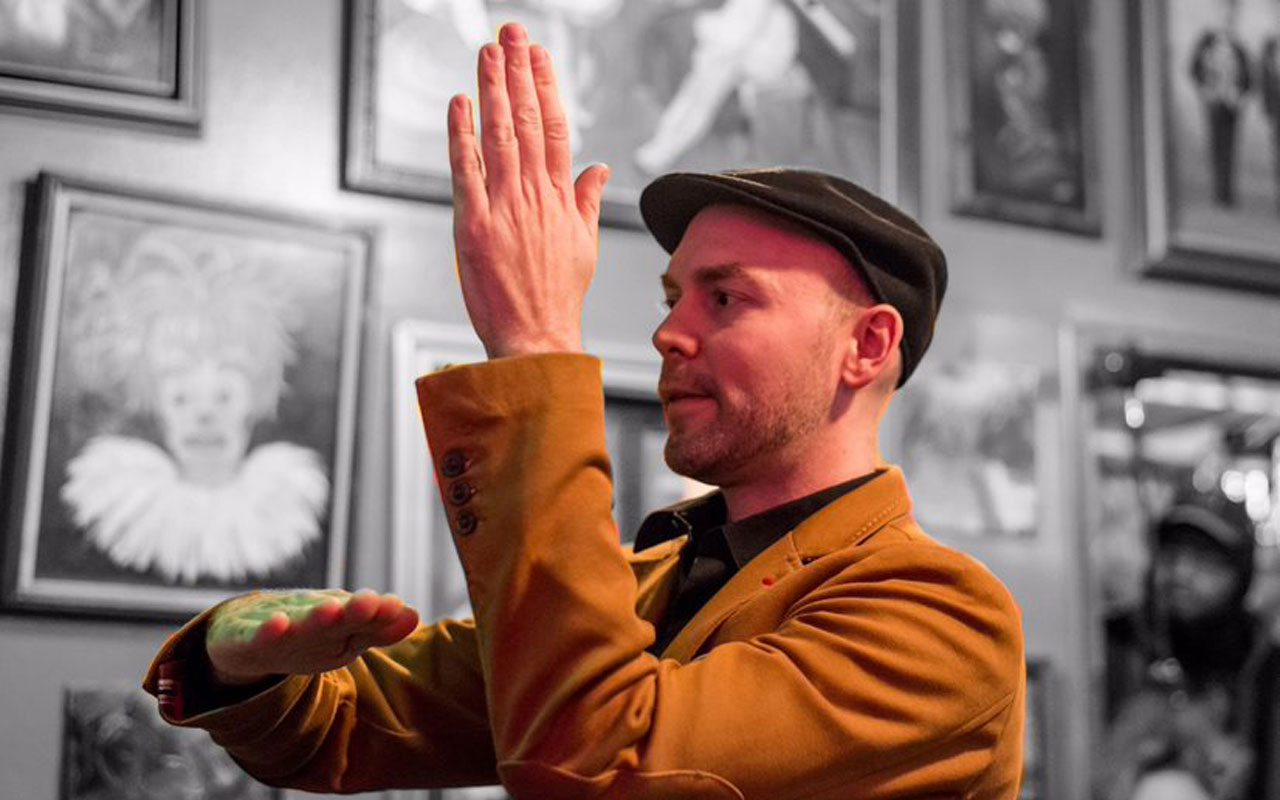
BY FRANK KOHL
Presented by Nonsequitur’s Wayward Music Series.
The innovative spirit of trombonist, composer, conductor, and educator Christian Pincock presents Scrambler, a fourteen-piece ensemble that offers an alternative to the way music is written and performed. Scrambler challenges the traditional role of the musician as it taps into their individuality as improvisers and interpreters of the music at hand. Using the technique known as “soundpainting,” developed by composer Walter Thompson in 1974, Pincock expands on this form of musical communication. Using hand signals and gestures, the conductor directs the ensemble through specific or aleatoric material combined with periods of free improv. Often popular material like Ellington, Monk, or even The Nutcracker is used as a launching pad for what can become an imaginative collage of our musical landscape. This technique of composing thrives on spontaneity and the players’ ability to think creatively and react to what they hear around them. Offering an exciting alternative to the way we may think of composition, we are invited to travel with the players to a destination unknown. Christian Pincock will be our guide as we witness the birth of creativity.
Joining Pincock are saxophonists Neil Welch, Jeremy Shaskus, Steve Tresler, Brian Bermudez (also on clarinet and flute), and Jenny Ziefel (also on clarinet); drummers Evan Woodle, Rocky Martin, and Greg Campbell; cellists Steve Meyer and Peter Tracy; Peter Nelson-King (trumpet and piano); Haley Freedlund (trombone); and Carol Levin (harp).
Alex Dugdale: What We Have on Tap
Friday October 28, 7:30pm PDT
Town Hall Forum
In-person & livestream
Tickets $10-30
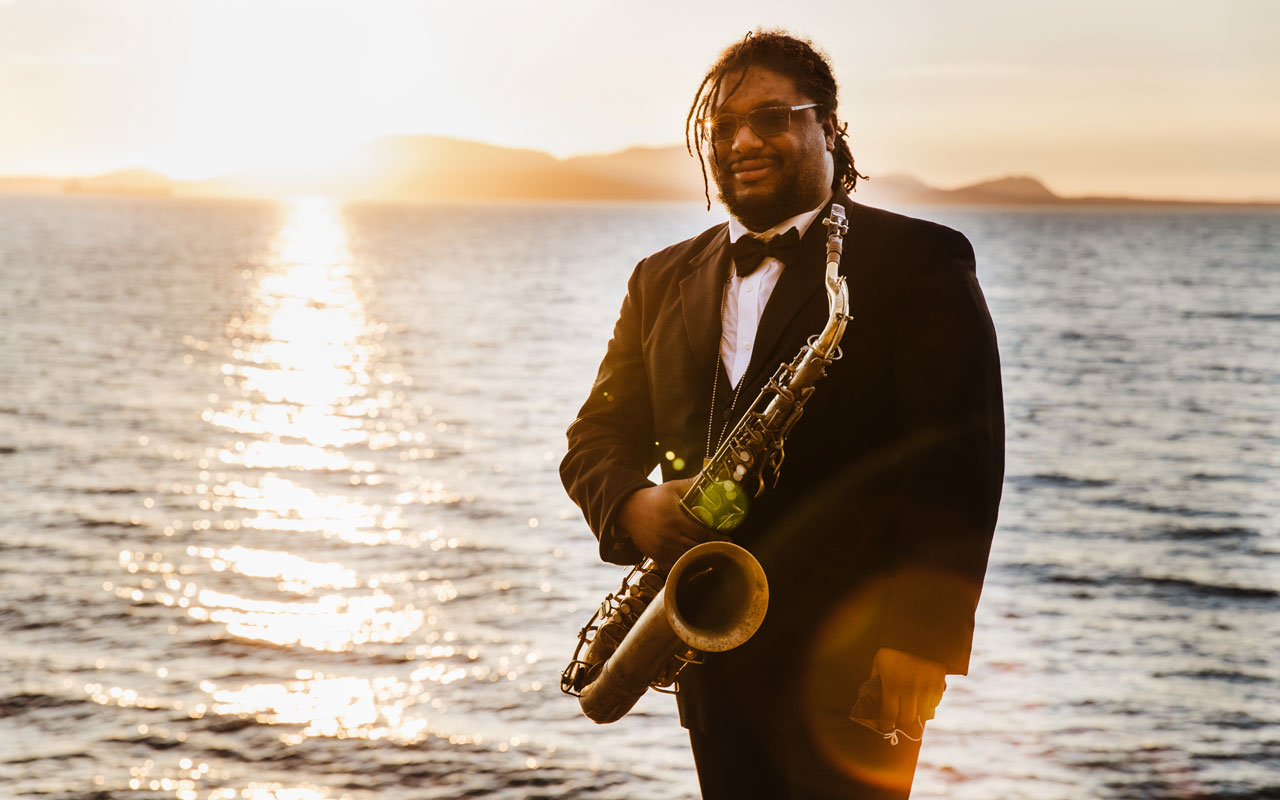
BY DENNIS MORAN
Sponsored by HomeStreet Bank. Welcomed by Rainier Avenue Radio.
Tap dancing was Alex Dugdale’s gateway to a life of music as a child growing up in Seattle—no wonder he likes to keep sharing the abiding joy and virtuosity of it as a performer and educator. The second of four festival performances as this year’s Resident Artist, Dugdale will ‘tap’ into that childlike world. The expressiveness of Dugdale’s tap performances and choreography demonstrate the art’s stunning, simultaneous audio and visual appeal, and communication—both with band members and the audience. Dugdale taps the night away alongside tap dancers Rachel Zuraek and Ahmen Taplin, to the music of the Dave Meder Trio featuring Meder on piano, Marty Jaffe on bass, and Michael Piolet on drums.
Tap dancing grew with jazz music itself, as a way of expressing the expanding rhythmic creativity with just feet hitting the floor. Think of Bill “Bojangles” Robinson and the Nicholas Brothers tearing it up in Cab Calloway’s band in the 1943 movie Stormy Weather.
Dugdale first experienced tap dancing watching tap innovator and legend Savion Glover on Sesame Street and immediately was all in. “I knew that was what I wanted to do,” he told Seattle’s SoulCanvas. At the age of six, he started taking dance lessons with the Seattle-based duo of Cheryl Johnson and Anthony Peters and “I just never stopped.” A pivotal moment was performing the tap’s renowned Shim Sham routine to a New York City street performance of “Take the A Train” when he was 11.
He kept tapping even as he picked up the clarinet in elementary school and then pursued his education and career as a world-class alto saxophonist. In performance, he often delightfully mixes the sax and tap. In 2002, Dugdale performed on stage with the legendary tap dancer Gregory Hines.
And he vigorously pays it forward, teaching tap and music at several Seattle schools, elementary level and up. He’s a 2008 graduate of Roosevelt High School, studied saxophone at the Eastman School of music in Rochester, New York, and earned a Master of Arts in Teaching at Seattle Pacific University.
And as he told Earshot Jazz in 2019, “I found that to be emotive in the moment, it’s tap dancing for me.”